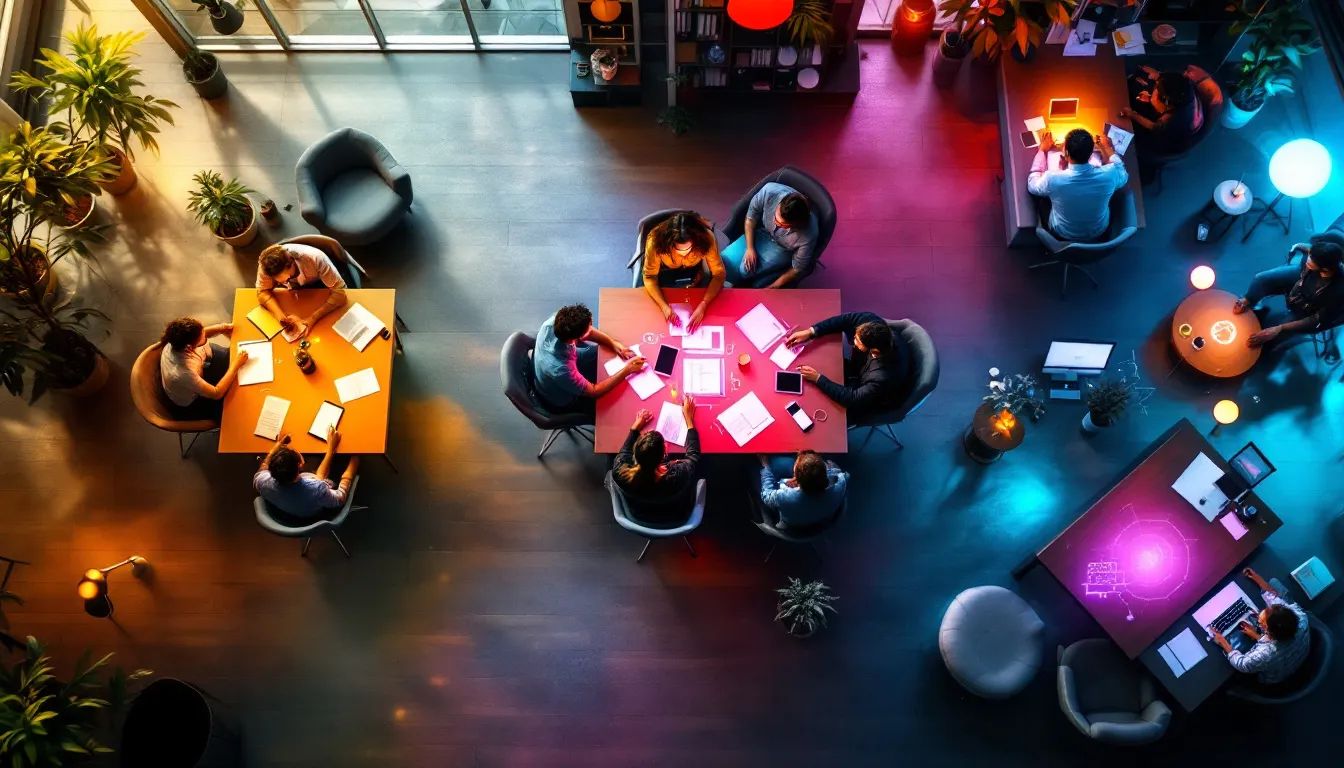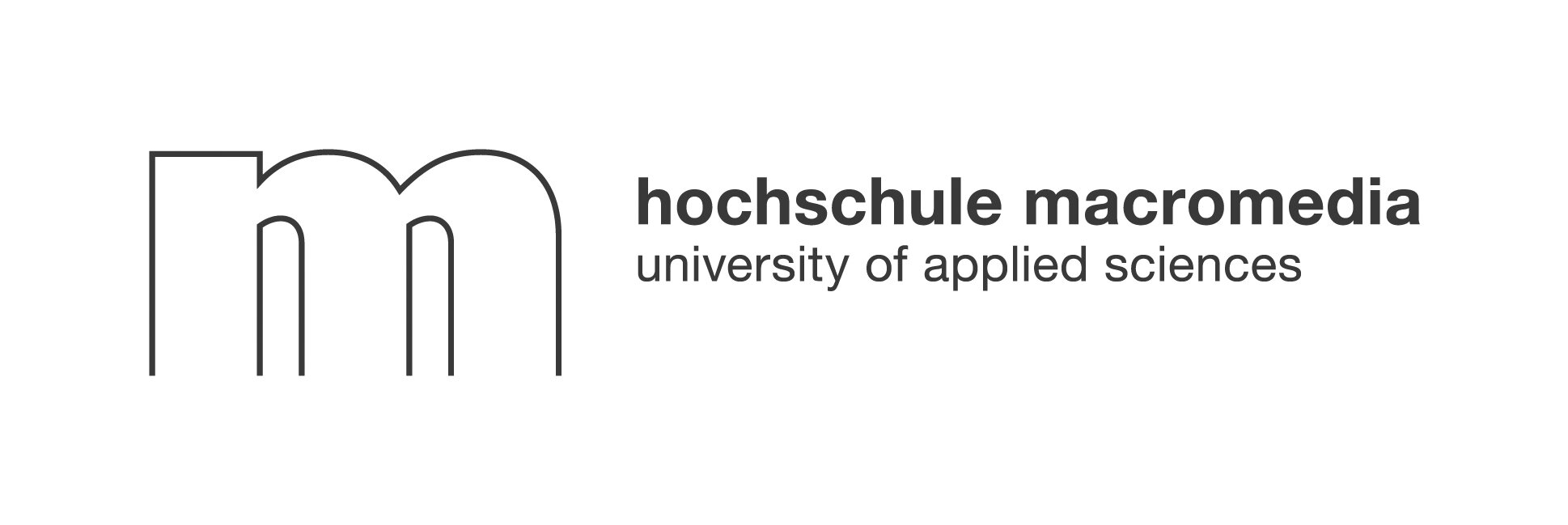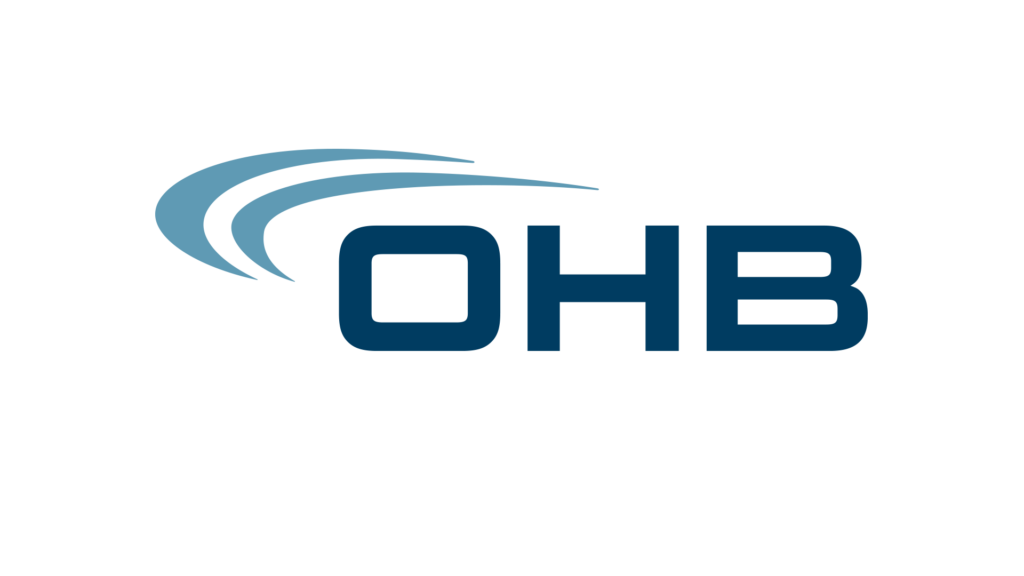Imagine a workplace where team-building isn’t just a quarterly event but an organic, everyday experience. Where AI doesn’t replace human connection but enhances it, bringing colleagues together in meaningful ways that align with their personal interests. This isn’t some distant future—it’s already unfolding as artificial intelligence revolutionizes how companies approach team cohesion and workplace culture.
The future of corporate team-building with AI represents a fundamental shift in how organizations foster collaboration, build relationships, and maintain strong company cultures. As we enter 2025, the traditional approach to team-building is being reimagined through intelligent systems that understand human preferences, reduce organizational friction, and create authentic connections between colleagues.
But what does this transformation really look like? How will AI change the way teams form bonds? And most importantly, how can companies harness this technology to create workplaces where employees genuinely want to collaborate? Let’s explore how AI is reshaping corporate team-building and what it means for the future of workplace collaboration.
How AI is Transforming Traditional Team-Building Approaches
Traditional team-building has long followed a predictable formula: scheduled events, often mandatory, designed to foster connection through structured activities. While these approaches have their place, they frequently miss the mark in creating genuine bonds between colleagues.
AI is fundamentally changing this paradigm by making team-building:
- Personalized: Rather than one-size-fits-all activities, AI analyzes individual preferences and recommends experiences tailored to specific interests
- Continuous: Moving beyond quarterly events to ongoing micro-interactions that build relationships organically
- Data-driven: Using behavioral insights to understand what actually works in fostering meaningful connections
- Adaptive: Learning from successful interactions to continuously improve recommendations
AI doesn’t replace human connection in team-building—it amplifies it by removing the barriers that prevent authentic relationships from forming in the workplace.
According to recent research from McKinsey, AI teammates represent a $6 trillion global opportunity, with significant potential to transform workplace collaboration. This isn’t just about productivity gains—it’s about fundamentally reimagining how colleagues interact and form bonds that strengthen organizational culture.
The Challenges of Modern Workplace Connection

The evolution of work has created new challenges for team cohesion:
| Challenge | Impact on Team-Building | AI Solution Potential |
|---|---|---|
| Remote/hybrid work | Physical separation reduces spontaneous interaction | AI can bridge distance through personalized virtual connection opportunities |
| Communication overload | 27% of employees feel bombarded by confusing internal communications | AI can streamline and personalize communication for meaningful exchange |
| Diverse interests | One-size-fits-all activities often fail to engage everyone | AI can match colleagues based on shared interests and preferences |
| Time constraints | Busy schedules make traditional team-building difficult to schedule | AI can identify optimal micro-moments for connection |
These challenges have only intensified in recent years. The post-pandemic workplace has seen a significant rise in employee isolation, with 65% of remote workers reporting they feel less connected to colleagues than before.
Neroia, a company at the forefront of AI-driven employee engagement, has recognized this shift. Our social employee benefits platform is designed specifically to address these modern workplace challenges by fostering organic connections between coworkers through AI-driven recommendations of small-group activities tailored to individual interests and schedules.
AI-Powered Personalization: The Key to Authentic Connection
The most transformative aspect of AI in team-building is its ability to personalize experiences. Unlike traditional approaches that treat all employees the same, AI-driven platforms can understand individual preferences and create tailored connection opportunities.
Here’s how personalization is changing team-building:
- Interest-Based Matching: AI analyzes employee interests to recommend activities they’ll genuinely enjoy
- Optimal Timing: Intelligent scheduling that works with individual calendars rather than against them
- Group Optimization: Creating small groups with complementary personalities and interests
- Continuous Learning: Systems that improve recommendations based on feedback and participation
This personalized approach dramatically increases engagement. When employees participate in activities aligned with their interests, connection happens naturally rather than feeling forced.
The future of team-building isn’t about forcing everyone into the same activity—it’s about finding the unique intersections of interest where authentic relationships can form.
Small-Group Dynamics: The Science Behind Effective Team-Building
Research consistently shows that meaningful connections form most effectively in smaller groups. AI is enabling a shift from large company-wide events to more intimate gatherings that foster deeper relationships.
Four key benefits of AI-facilitated small-group interactions:
- Psychological Safety: Smaller settings create environments where people feel comfortable being authentic
- Equal Participation: Less opportunity for dominant personalities to monopolize interaction
- Deeper Conversation: More meaningful exchanges compared to surface-level networking in large groups
- Relationship Building: Stronger bonds form through repeated small-group interactions
Neroia’s platform exemplifies this approach by focusing on micro-events with just 3-4 participants. This deliberate design choice reflects the understanding that meaningful workplace relationships often develop in smaller, more intimate settings rather than large group activities.
Breaking Down Departmental Silos Through AI
One of the most valuable contributions of AI to team-building is its ability to connect employees across traditional organizational boundaries. By analyzing interests rather than job titles, AI can create cross-functional connections that might never happen organically.
Benefits of cross-departmental connections include:
- Innovation through diverse perspectives
- Enhanced organizational knowledge sharing
- Reduced “us vs. them” mentality between departments
- Expanded internal networks for career development
A study by Harvard Business Review found that companies with strong cross-departmental collaboration were 5.5 times more likely to be high-performing. AI-powered team-building makes these connections more likely by identifying common interests that transcend organizational charts.
Real-Time Feedback and Continuous Improvement
Traditional team-building activities often lack meaningful measurement. Companies might track attendance or collect post-event surveys, but rarely gain deep insights into what’s actually working.
AI-driven approaches change this through:
| Traditional Measurement | AI-Enhanced Measurement |
|---|---|
| Post-event satisfaction surveys | Real-time engagement analysis |
| Attendance tracking | Participation quality metrics |
| Anecdotal feedback | Pattern recognition across interactions |
| One-time assessment | Continuous improvement loops |
This data-driven approach allows organizations to continuously refine their team-building strategies, focusing resources on what actually strengthens connections rather than what merely looks good on paper.
The Human-AI Balance in Team-Building
While AI brings powerful capabilities to team-building, the most effective approaches maintain a careful balance between technology and human elements. The goal isn’t to automate connection but to facilitate it more effectively.
As we build this next generation of AI, we made a conscious design choice to put human agency both at a premium and at the center of the product.
Successful AI implementation in team-building:
- Uses technology to identify connection opportunities
- Removes friction from the process of organizing interactions
- Provides suggestions rather than mandates
- Learns from human feedback to improve recommendations
- Preserves the authenticity of human connection
Neroia’s approach exemplifies this balance. Our platform uses AI to make recommendations and reduce planning friction, but the actual interactions remain genuinely human. The technology works in the background, making connections possible without intruding on the human experience.
Addressing Privacy and Trust Concerns

As with any AI application, team-building platforms must address legitimate concerns about data privacy and algorithmic transparency. Employees may worry about how their personal information is being used or whether they’re being evaluated based on their participation.
Best practices for maintaining trust include:
- Clear opt-in policies for data collection
- Transparency about how recommendations are generated
- Employee control over their own participation
- Anonymized data for organizational insights
- Strong data security protocols
Neroia prioritizes employee-centricity and privacy, utilizing anonymized data for HR analytics while maintaining a closed, secure community. This approach recognizes that trust is fundamental to successful team-building—if employees don’t trust the platform, they won’t engage authentically.
The ROI of AI-Powered Team-Building
Organizations investing in AI-driven team-building are seeing tangible returns beyond just “improved morale.” The business impact includes:
- Reduced Turnover: Employees with strong workplace relationships are less likely to leave
- Increased Innovation: Cross-functional connections spark new ideas
- Improved Collaboration: Teams that know each other personally work together more effectively
- Enhanced Productivity: Stronger relationships reduce communication barriers
- Better Knowledge Sharing: Informal networks facilitate information flow
According to McKinsey research, 87% of executives expect revenue growth from AI within the next three years, with team collaboration being a key area of impact.
Case Study: How AI-Driven Micro-Events Transform Workplace Culture
Consider the experience of a mid-sized technology company that implemented an AI-driven team-building platform similar to Neroia’s approach:
Before implementation:
- 65% of employees reported feeling disconnected from colleagues outside their immediate team
- Cross-departmental projects frequently stalled due to communication issues
- Remote employees felt excluded from company culture
After six months with AI-driven micro-events:
- 82% of employees had formed at least one new meaningful workplace relationship
- Cross-departmental collaboration increased by 34%
- Remote employee satisfaction scores improved by 28%
The key to success was the platform’s ability to create personalized, small-group experiences that aligned with individual interests while fitting naturally into work schedules.
The Future Landscape of AI-Powered Team-Building
Looking ahead to 2026 and beyond, several trends will shape the evolution of AI in corporate team-building:
- Multimodal AI: Systems that understand not just text preferences but visual and audio cues to better match compatible colleagues
- Predictive Team Formation: AI that can anticipate which team compositions will be most effective for specific projects
- Virtual and Physical Integration: Seamless blending of digital and in-person connection opportunities
- Wellness Integration: Team-building that simultaneously addresses social connection and employee wellbeing
- Cultural Intelligence: AI systems that understand and respect cultural differences in relationship-building
The most forward-thinking companies are already preparing for this future by implementing flexible platforms that can evolve with technological advancements.
How Organizations Can Prepare for AI-Driven Team-Building
For companies looking to embrace the future of corporate team-building with AI, here are key steps to consider:
- Assess Current Connection Gaps: Understand where your organization currently struggles with team cohesion
- Start with Clear Objectives: Define what successful team-building looks like for your organization
- Choose Human-Centered Technology: Select platforms that enhance rather than replace human connection
- Implement Gradually: Begin with pilot programs before full-scale implementation
- Measure Meaningful Outcomes: Look beyond participation to assess actual relationship formation
- Maintain Flexibility: Be prepared to adapt as both technology and workplace needs evolve
Neroia offers a social employee benefits platform designed specifically to enhance workplace culture and boost employee engagement through AI-driven recommendations. Its core value proposition is fostering organic connections between coworkers through small-group activities tailored to individual interests and schedules, making it an excellent example of the future of corporate team-building with AI.
Conclusion: The Human Heart of AI-Powered Team-Building
The future of corporate team-building with AI isn’t about technology replacing human connection—it’s about technology making human connection more possible, more meaningful, and more inclusive in our complex modern workplaces.
As work continues to evolve, the organizations that thrive will be those that successfully harness AI to strengthen their human core. They’ll use intelligent systems to break down barriers, create unexpected connections, and build cultures where collaboration happens naturally rather than by mandate.
Neroia exemplifies this vision by using AI to foster authentic connections between colleagues through shared interests and activities. By minimizing planning friction and encouraging informal interactions, our platform demonstrates how technology can enhance rather than diminish the human experience of work.
The future of corporate team-building with AI is already here—and it’s making work more connected, more collaborative, and ultimately more human.




